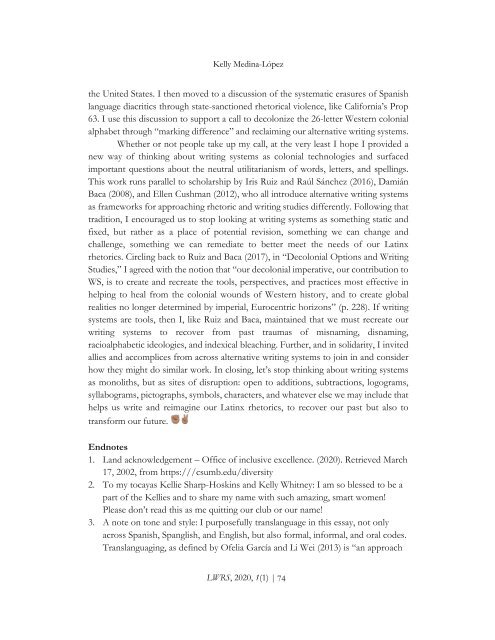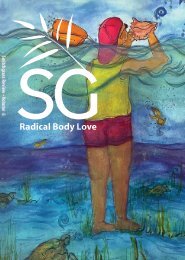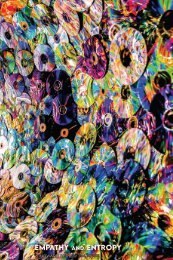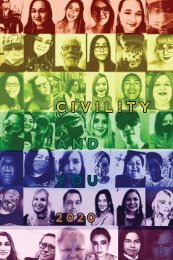LWRS June 2020 Volume 1, Issue 1
Inaugural Issue co-edited by Yndalecio Isaac Hinojosa and Isabel Baca
Inaugural Issue co-edited by Yndalecio Isaac Hinojosa and Isabel Baca
You also want an ePaper? Increase the reach of your titles
YUMPU automatically turns print PDFs into web optimized ePapers that Google loves.
Kelly Medina-López<br />
the United States. I then moved to a discussion of the systematic erasures of Spanish<br />
language diacritics through state-sanctioned rhetorical violence, like California’s Prop<br />
63. I use this discussion to support a call to decolonize the 26-letter Western colonial<br />
alphabet through “marking difference” and reclaiming our alternative writing systems.<br />
Whether or not people take up my call, at the very least I hope I provided a<br />
new way of thinking about writing systems as colonial technologies and surfaced<br />
important questions about the neutral utilitarianism of words, letters, and spellings.<br />
This work runs parallel to scholarship by Iris Ruiz and Raúl Sánchez (2016), Damián<br />
Baca (2008), and Ellen Cushman (2012), who all introduce alternative writing systems<br />
as frameworks for approaching rhetoric and writing studies differently. Following that<br />
tradition, I encouraged us to stop looking at writing systems as something static and<br />
fixed, but rather as a place of potential revision, something we can change and<br />
challenge, something we can remediate to better meet the needs of our Latinx<br />
rhetorics. Circling back to Ruiz and Baca (2017), in “Decolonial Options and Writing<br />
Studies,” I agreed with the notion that “our decolonial imperative, our contribution to<br />
WS, is to create and recreate the tools, perspectives, and practices most effective in<br />
helping to heal from the colonial wounds of Western history, and to create global<br />
realities no longer determined by imperial, Eurocentric horizons” (p. 228). If writing<br />
systems are tools, then I, like Ruiz and Baca, maintained that we must recreate our<br />
writing systems to recover from past traumas of misnaming, disnaming,<br />
racioalphabetic ideologies, and indexical bleaching. Further, and in solidarity, I invited<br />
allies and accomplices from across alternative writing systems to join in and consider<br />
how they might do similar work. In closing, let’s stop thinking about writing systems<br />
as monoliths, but as sites of disruption: open to additions, subtractions, logograms,<br />
syllabograms, pictographs, symbols, characters, and whatever else we may include that<br />
helps us write and reimagine our Latinx rhetorics, to recover our past but also to<br />
transform our future. 34<br />
Endnotes<br />
1. Land acknowledgement – Office of inclusive excellence. (<strong>2020</strong>). Retrieved March<br />
17, 2002, from https:///csumb.edu/diversity<br />
2. To my tocayas Kellie Sharp-Hoskins and Kelly Whitney: I am so blessed to be a<br />
part of the Kellies and to share my name with such amazing, smart women!<br />
Please don’t read this as me quitting our club or our name!<br />
3. A note on tone and style: I purposefully translanguage in this essay, not only<br />
across Spanish, Spanglish, and English, but also formal, informal, and oral codes.<br />
Translanguaging, as defined by Ofelia García and Li Wei (2013) is “an approach<br />
<strong>LWRS</strong>, <strong>2020</strong>, 1(1) | 74





